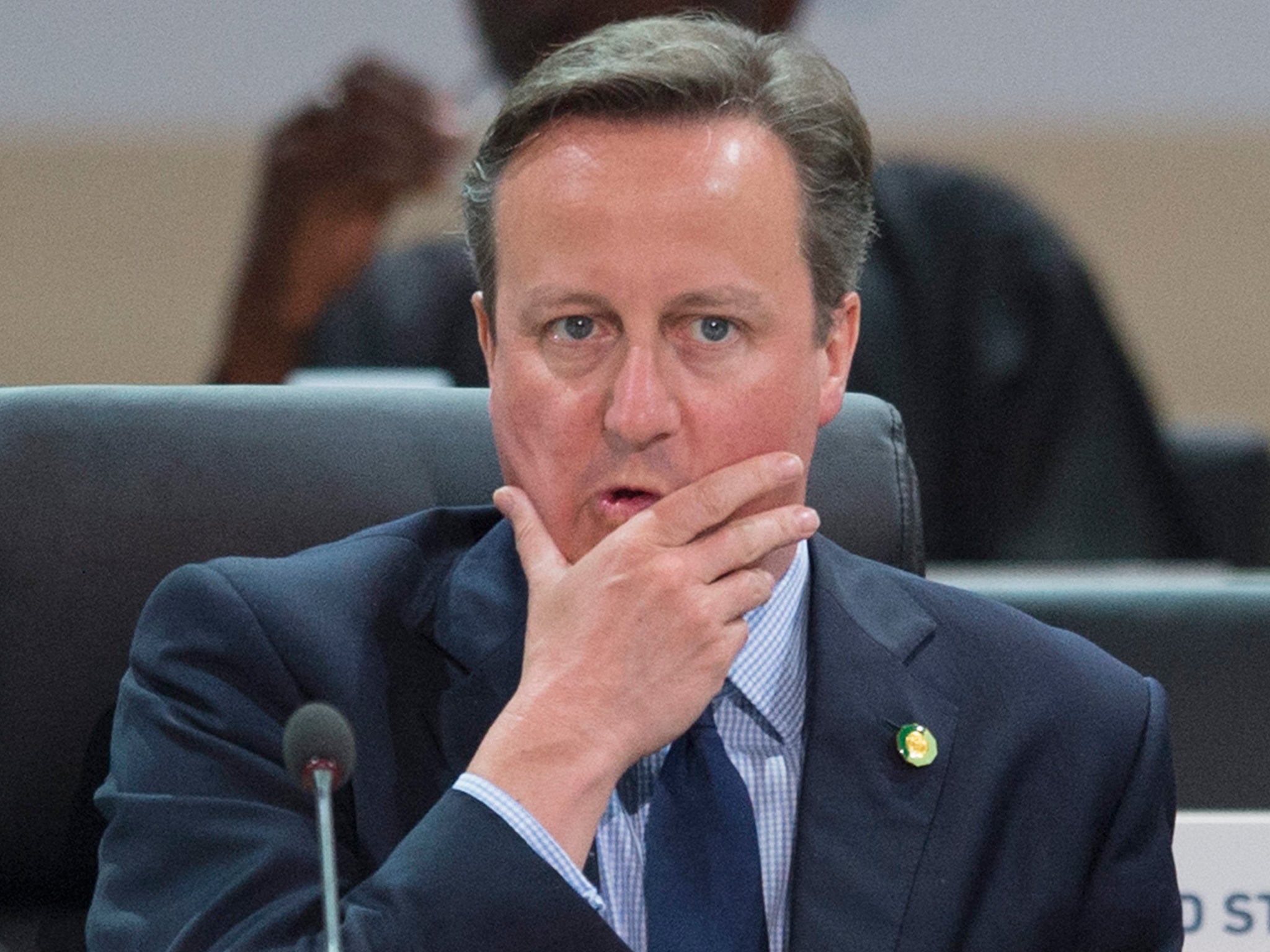Where Cameron is concerned, it's not a case of the sins of the father – the hypocrisy of the son is shocking enough
The suspicion must be that the need to protect wealthy Tory donors prompted British opposition to the EU plan to crack down on offshore trusts. Forget his father's tax affairs, this is major embarrasment for the Prime Minister

It is very hard to see how David Cameron’s father using an off-shore fund in the 1980s to invest his clients’ money should be a political scandal for his son today. But, by stark contrast, the revelation this morning that Mr Cameron himself tried to weaken a EU drive to reveal the true beneficiaries of trusts is a far more serious allegation.
Ever since the scandals of widespread corporate and personal tax avoidance came to light after the 2010 election the Prime Minister has always publicly portrayed himself as the champion of transparency. Speaking before the G8 summit in Northern Ireland in 2013, Cameron called for the removal of the "veil of secrecy" that enables some corporations and officials to "run rings" around the law. The British Government positioned itself as being at the forefront of international efforts to tackle the abuse of financial secrecy and to a large extent avoided political flak over the issue because of that.
But we now know that, behind the scenes, Cameron was personally blocking a move that would have cracked down on individuals using trusts as a way of evading tax.
Just a few months after the summit, the Prime Minister wrote of Herman Van Rompuy, President of the European Council at the time, to argue that trusts widely used for inheritance planning in Britain should win special treatment in an EU law to tackle money laundering. “It is clearly important we recognise the important differences between companies and trusts. This means that the solution for addressing the potential misuse of companies, such as central public registries, may well not be appropriate generally.”
Now all this is a complex area and Downing Street may be able to make a plausible case as to why trusts set up by wealthy individuals should be treated differently than trusts set up by wealthy companies. But at the moment it doesn’t look good.

The suspicion will be that such a move would have impacted most on wealthy Tory donors and supporters and it was that which prompted British opposition to the European plan.
We should ignore the sins of the father – and concentrate our efforts on establishing the extent of the sins of the son.
Join our commenting forum
Join thought-provoking conversations, follow other Independent readers and see their replies
Comments